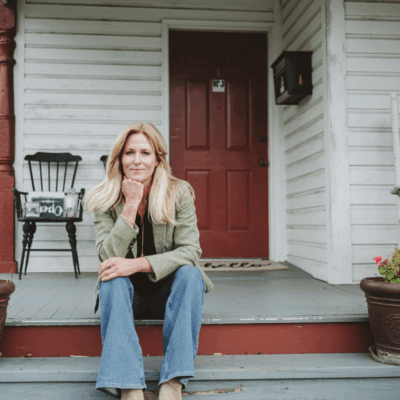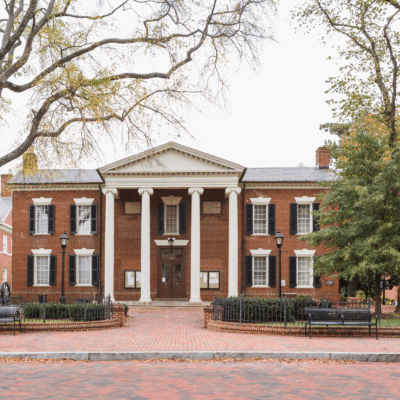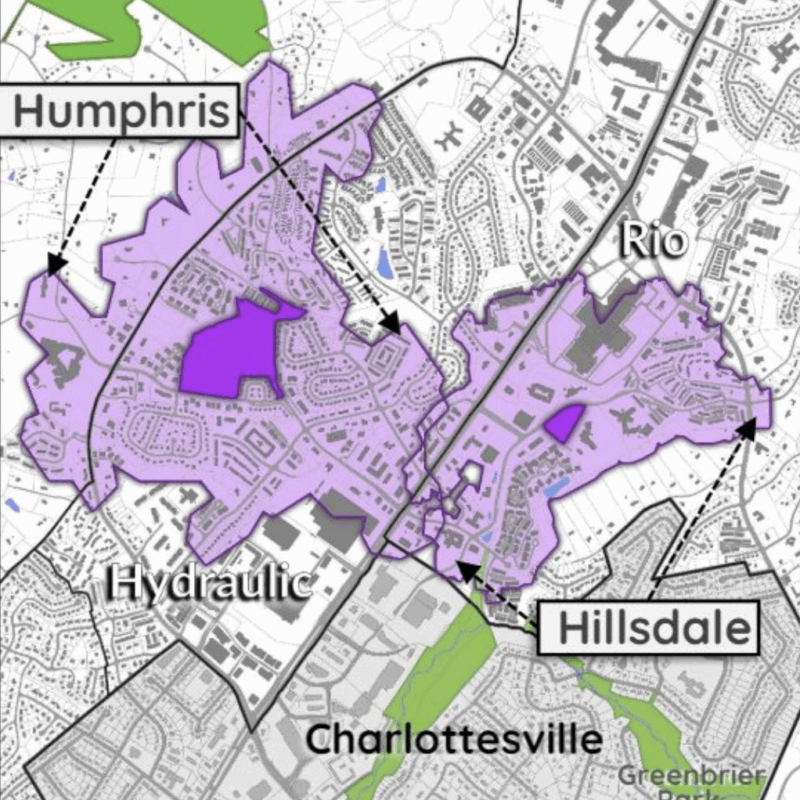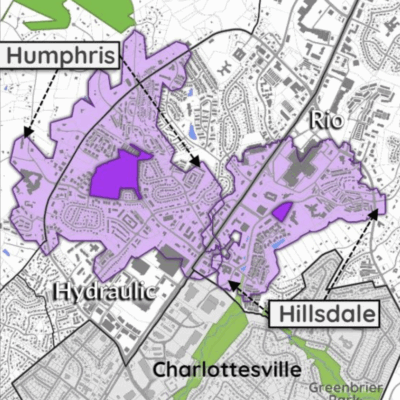When Charlottesville Tomorrow began in 2005, it was one of the first nonprofit, local news orgs in the country. Its mission was so narrow—land use, community design, transportation—that another local weekly called it a “growth watchdog.”
The online publication broadened its name recognition and reach when it began sharing content with the Daily Progress in 2009, a liaison that lasted 10 years, until executive director Giles Morris announced June 24 that its partnership with the Progress was over, and CTom was broadening its mission: “Charlottesville Tomorrow delivers in-depth reporting and analysis that improves local decision-making. We seek to expand civic engagement to foster a vibrant, inclusive, and interdependent community.”
It wasn’t just one thing that caused the break up with the Progress, says Morris, a former editor of C-VILLE Weekly. The once-heralded collaboration had survived multiple editors, publishers, and owners of the newspaper, most recently BH Media, a subsidiary of Berkshire Hathaway, whose CEO Warren Buffett famously declared for-profit print newspapers “toast.”
Lately, “the Progress was only running about half our stuff,” says Morris. “I don’t think it was working as well.” And he’s not worried about losing the print outlet. “We’ve always been digital.”
In the year or so since Morris became executive director, he’s doubled the news staff to four, and hired former DP associate city editor Elliott Robinson to be editor. He wants to run longer, more in-depth pieces. In the past, says Morris, “we just wrote meetings reports.” The daily news cycle doesn’t allow time for a reporter to call nine sources, he says. “As a nonprofit, we can be very intentional.”
“It was their call,” says DP editor Aaron Richardson. “I wish them every success.”
UVA associate professor Christopher Ali, who specializes in local media, says he was surprised by the move. “This was one of the most innovative partnerships in digital news.”
Working with the Progress guaranteed visibility for Charlottesville Tomorrow, he says. “I’d be interested in seeing their strategy for visibility.”
Ali is “more worried about the Daily Progress than I am Charlottesville Tomorrow. It is really difficult to be a small market paper.”
He suggests with the loss of CTom content, the Progress “double down on local coverage” and don’t substitute AP stories. “That’s the one thing local newspapers can offer.”
Charlottesville Tomorrow was founded by hedge fund manager Michael Bills and Southern Environmental Law Center founder Rick Middleton at a time that growth in Albemarle County was a big concern for rural landscape lovers. Its wealthy board included Renee Grisham, wife of mega-author John, and the nonprofit was supported by donors like Ted Weschler, a top stock picker for Buffett and an investor in C-VILLE Weekly’s parent company.
The change in mission came slowly over the past year since Morris was hired. “The language in our original mission didn’t sound like where we want to be.”
Land use and public education have been “pillars of our coverage,” he says. “We’re not going to abandon that. If the community wants public health or housing coverage, we’re going to raise the money to do it well.”
“I consider it more of an evolution than a change in mission,” says Bills. “We’re still trying to fill the local news coverage the community needs to make decisions.”
Much like listener-supported public radio, Charlottesville Tomorrow will continue to need donors. It reported revenues of $460,000 in 2017, and in the $400,000 ballpark the two years prior, according to its IRS 990s.
Morris wants people to sign up for emails, which will include fundraising pitches. “We want more readers. We want more readers to be donors,” he says. And CTom will continue to apply for grants, such as the ones it receives from the Knight Foundation.
The events of August 12, 2017, also factored into the changes Charlottesville Tomorrow is making, with more people covering local government meetings, says Morris, and more awareness of racial inequity.
Morris says he wasn’t pointing fingers specifically at the Progress when he wrote, “Today, Charlottesville is a place where we’re all questioning and challenging the inherited models that have reinforced harmful power dynamics.”
But he does acknowledge the role community newspapers had in supporting segregation while covering up “the corrosive injustice of racism in the South.”
When he came to Charlottesville in 2011, he says he was “unprepared to cover race and equality in this place.” While at C-VILLE, Morris had to deal with a protest in 2013 after the paper published a racist comment in a section called “The Rant.”
Says Morris, “In journalism, we share a responsibility.”
Morris and Robinson will be conducting a series of listening sessions in the coming months to learn how locals want Charlottesville Tomorrow’s guiding values of “equity, truth and community” put into place.
City spokesman Brian Wheeler was CTom’s first executive director. “As someone who was involved in the birth of the organization, I am excited to see its current leadership continuing to innovate, to launch a next generation news website, and to serve the community’s critical information needs.”





